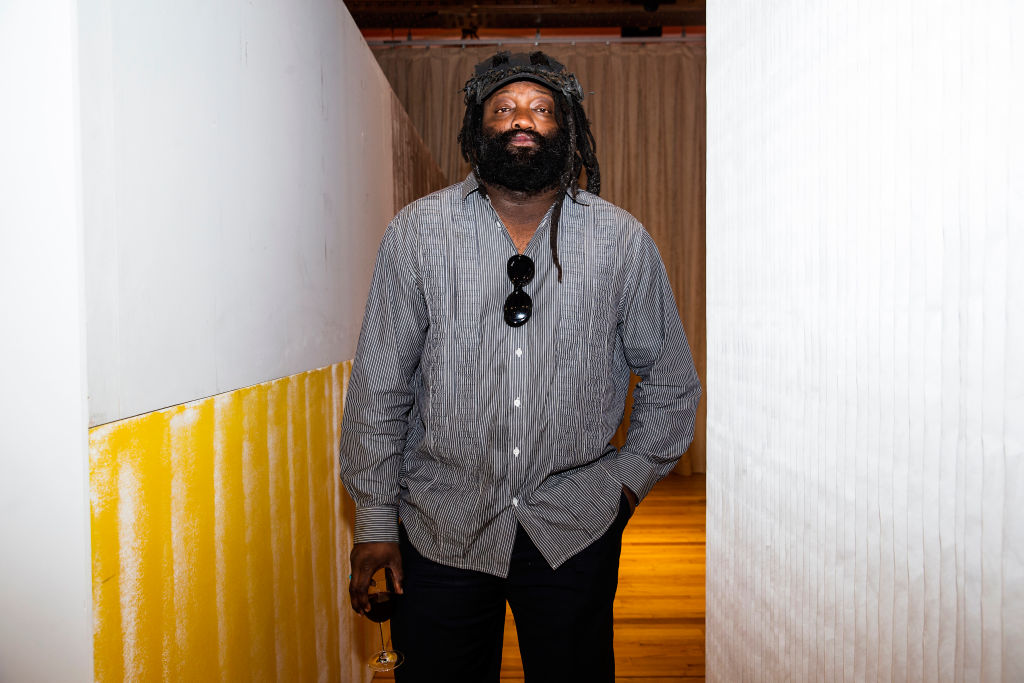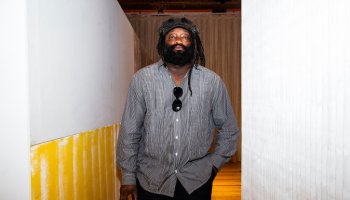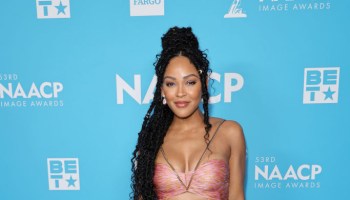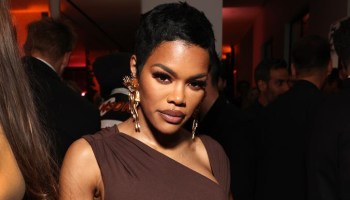
Source: WWD / Getty
Earlier this month social media was shocked to learn that Tremaine Emory suddenly departed from popular street brand Supreme after only a year and a half due to alleged “systemic racism.”
Emory explained that Supreme not wanting to drop some merchandise from Black artist that depicted a lynching was the straw that broke the camel’s back. But he recently went on the Toure Show podcast to further elaborate on the culture at Supreme that slowly but surely pushed him out that exit door.
While Emory was named creative director of the brand, he contends Supreme founder James Jebbia continued to call the shots as if he were the creative director of the company. And Emory felt that he was being “racially charged” during his tenure at the global street brand. But it wasn’t until the Supreme collaboration with Arthur Jafa (who only accepted the offer as he would be working with Emory on the project), that the Deni Tears found experienced enough to make him walk away from Supreme. Explaining that Jafa wanted to use his LeRage avatar for the Supreme collaboration (that would’ve been dope as hell) along with other ideas, Tremaine got into how the collection would’ve looked had they gone forward with the original plan.
One of those images was of a lynching of Black people, which Jebbia originally agreed to as he felt it was very relevant. Still, the project was ultimately deaded as the controversial images on clothes never made it to shelves without Emory ever being told it was being canceled. “I want to create clothing that matters and sometimes for something to matter it creates tension,” Emory told Toure.
He did admit that there were two Black employees that had an issue with the imagery but blamed it on the higher-ups at Supreme being “thoughtless” for not speaking to the team and explaining to them what they were doing and why they were doing it. It’s worth noting that Emory is not getting universal support since many aren’t comfortable with the though of Supreme’s mainstream clientele putting on clothing with lynching imagery.
After Jebbia canceled the project, Tremaine felt it was time to go and felt that the “thoughtlessness and their lack of response when I was trying to garner discourse” pushed him out the door.
Check out the entire interview here, and let us know your thoughts on Emory’s time at Supreme and the collection that never was in the comments section below.
Tremaine Emory Talks Time At Supreme & Reasoning Behind His Departure was originally published on hiphopwired.com

















